Does Pay Per Click Advertising Work?
Does Pay Per Click Advertising Work? Let’s dive right into the fascinating world of PPC ads! You may have heard people talking about the wonders of Pay Per Click (PPC) advertising, but does it truly deliver the results it promises? Well, my curious friend, buckle up as we embark on a journey to explore the effectiveness of this popular marketing strategy.
Imagine this: You’re scrolling through your favorite website, and suddenly, an ad catches your eye. It’s for the exact product you’ve been searching high and low for! Coincidence? Not quite! That, my friend, is the power of PPC advertising. With PPC, businesses bid for ad placements on search engines, and they only pay when someone clicks on their ad. Neat, isn’t it?
But wait, there’s more! PPC ads are designed to target specific keywords and demographics, ensuring that only the right people see them. Whether you’re a small business owner or a bigwig in the corporate world, PPC allows you to reach potential customers with precision. So, does it work? Well, let’s unravel the mystery together and discover if PPC advertising is worth your time and money.
I’m thrilled to be your guide on this exploratory journey as we unravel the effectiveness of Pay Per Click advertising. So, let’s get ready to uncover the truth behind this marketing strategy and find out if it truly lives up to the hype.
[End of Introduction]

Does Pay Per Click Advertising Work?
Pay Per Click (PPC) advertising has become a popular method for businesses to promote their products and services online. But does it really work? In this article, we will explore the effectiveness of PPC advertising and examine its benefits, drawbacks, and best practices. Whether you are a business owner considering PPC as part of your marketing strategy or a curious individual wanting to understand more about online advertising, this article will shed light on the topic.
The Basics of Pay Per Click Advertising
PPC advertising is an online marketing model where advertisers pay a fee each time their ad is clicked. It is a way to buy visits to your website, rather than relying solely on organic traffic. The most common form of PPC advertising is search engine advertising, where ads are displayed alongside search engine results when users search for specific keywords. Other popular platforms for PPC advertising include social media platforms like Facebook and Instagram, as well as display networks where ads are placed on relevant websites.
Running a PPC campaign involves several key steps. First, advertisers must select relevant keywords that are most likely to be searched by their target audience. Next, they create compelling ad copy and set their bid amount, which determines how much they are willing to pay for each click. The search engine or platform then uses a combination of factors, including the bid amount, ad relevance, and landing page quality, to determine the ad’s placement in search results or its visibility on the platform.
PPC advertising offers several benefits to businesses. It allows for precise targeting, as advertisers can choose specific keywords, demographics, and locations for their ads to appear. It also provides immediate visibility, as ads can be up and running within a short period of time. Additionally, PPC advertising offers measurable results, allowing advertisers to track their return on investment (ROI) and make data-driven decisions to optimize their campaigns.
The Effectiveness of Pay Per Click Advertising
Now that we understand the basics of PPC advertising, let’s dive into its effectiveness. One of the main advantages of PPC advertising is its ability to generate instant traffic to a website. Unlike organic search engine optimization (SEO) that takes time to yield results, PPC ads can appear on top of search results almost immediately after a campaign is launched. This quick visibility can be especially beneficial for new businesses or those looking to promote limited-time offers and events.
Furthermore, PPC advertising allows businesses to target specific keywords and demographics, ensuring that their ads are displayed to relevant users. This targeted approach increases the likelihood of reaching potential customers who are actively searching for products or services similar to what the business offers. By appearing at the top of search results, PPC ads also gain instant credibility and visibility, making it more likely for users to click on them and visit the advertiser’s website.
However, it is important to note that PPC advertising is not a one-size-fits-all solution. While it can be a highly effective marketing tool, its success depends on various factors, including the competitiveness of the industry, the keyword selection, the quality of the ad copy, and the landing page experience. Advertisers must continuously monitor and optimize their campaigns to ensure they are getting the best results. Additionally, PPC advertising can be costly, especially in highly competitive industries, where bidding wars can drive up the cost per click.
Tips for Successful Pay Per Click Advertising
To maximize the effectiveness of your PPC advertising campaigns, consider the following tips:
- Keyword Research: Conduct thorough keyword research to identify high-relevance and low-competition keywords for your industry.
- Compelling Ad Copy: Write compelling and relevant ad copy that entices users to click on your ads.
- Landing Page Optimization: Ensure that your landing page is user-friendly, relevant to the ad, and encourages conversions.
- Monitor and Optimize: Continuously monitor the performance of your campaigns and make data-driven optimizations to improve results.
- Set Realistic Budgets: Determine your advertising budget and set realistic expectations based on your industry and competition.
By following these tips and continuously refining your PPC advertising strategies, you can increase the effectiveness of your campaigns and drive valuable traffic to your website.
The Benefits of Outsourcing PPC Advertising
When it comes to managing PPC advertising campaigns, many businesses choose to outsource this task to specialized agencies or consultants. Outsourcing PPC advertising offers several advantages, including:
Expertise and Experience
Outsourcing allows businesses to tap into the expertise and experience of professionals who specialize in PPC advertising. These experts stay up-to-date with the latest trends, strategies, and algorithm updates, ensuring that your campaigns are optimized for success. They have a deep understanding of how to conduct keyword research, write compelling ad copy, and analyze campaign metrics to deliver maximum results.
Furthermore, outsourcing PPC advertising frees up your internal team to focus on other core business activities. While the experts handle the day-to-day management of your PPC campaigns, your team can dedicate their time and resources to other vital aspects of your business, such as product development, customer service, and strategic planning.
Cost-Effective and Time-Saving
Outsourcing PPC advertising can also be more cost-effective compared to hiring and training in-house staff to manage these campaigns. By outsourcing, you eliminate recruitment costs, staff salaries, and ongoing training expenses. Additionally, expert PPC consultants can optimize your campaigns to ensure maximum return on investment, potentially reducing your overall advertising costs while driving more qualified leads to your website.
Moreover, outsourcing saves time. PPC advertising requires continuous monitoring, tweaking, and optimization. By outsourcing these tasks, you can offload the responsibility to professionals who have the tools, knowledge, and resources to efficiently manage your campaigns. This allows you to focus on other aspects of your business without compromising the performance of your advertising efforts.
Access to Advanced Tools
PPC advertising involves the use of various tools to track performance, conduct competitor analysis, and identify optimization opportunities. When outsourcing, you gain access to advanced tools and technologies that professionals use to deliver exceptional results. These tools can provide valuable insights and data to enhance your campaigns and drive better outcomes.
To ensure the success of your outsourced PPC advertising, invest time in finding reputable agencies or consultants with a proven track record of delivering results. Look for those who have experience in your industry and can provide case studies or testimonials supporting their expertise.
Common Misconceptions About Pay Per Click Advertising
Despite its growing popularity, there are still several misconceptions surrounding PPC advertising. Let’s address some of the most common ones:
PPC Advertising Guarantees High Conversions
While PPC advertising can drive traffic to your website, it does not guarantee high conversions. Converting visitors into customers depends on several factors, including the quality of your website, the persuasiveness of your content, and the user experience you provide. PPC advertising should be seen as a means to attract potential customers, but it is up to your website and offerings to convert them into paying customers.
PPC Advertising is Too Expensive
While PPC advertising can be costly, especially in competitive industries, it can also deliver significant returns on investment when executed strategically. By carefully selecting keywords, optimizing ad copy, and continuously monitoring and optimizing campaigns, businesses can achieve a high ROI from their PPC advertising efforts. It is essential to set realistic budgets and expectations based on your industry and competition to ensure your advertising spend generates positive results.
PPC Advertising is a Set-It-and-Forget-It Strategy
PPC advertising requires ongoing monitoring, optimization, and refinement. It is not a strategy that can be set up once and then left to run on autopilot. To achieve optimal results, advertisers must constantly analyze campaign data, test different approaches, and make adjustments based on performance metrics. By actively managing and optimizing their PPC campaigns, businesses can maximize their chances of success in the competitive online advertising landscape.
Conclusion:
Pay Per Click advertising can be an effective and valuable marketing tool when used strategically. It offers businesses the opportunity to reach their target audience, drive quality traffic to their websites, and generate measurable results. However, success in PPC advertising requires careful planning, continuous monitoring, optimization, and refinement.
By understanding the basics of PPC advertising, applying best practices, and considering outsourcing options, businesses can unlock the potential of this online advertising model. Keep in mind that while PPC advertising can be powerful, it is not a guaranteed pathway to success. It should be part of a comprehensive marketing strategy that includes other channels and tactics to achieve long-term growth and success.
So, if you’re considering incorporating PPC advertising into your marketing strategy, take the time to research, plan, and execute your campaigns strategically. Continuously analyze the performance of your campaigns and make data-driven decisions to optimize your results. With the right approach and commitment, PPC advertising can deliver real results for your business.
Key Takeaways
- Pay Per Click advertising can be an effective way to drive targeted traffic to your website.
- It allows you to display ads on search engine results pages and other websites.
- PPC advertising can help increase brand visibility and reach a wider audience.
- However, the success of PPC campaigns depends on various factors, such as keyword selection and campaign optimization.
- Regular monitoring and analysis of campaign performance is crucial for achieving desired results.
Frequently Asked Questions
Welcome to our Frequently Asked Questions section where we answer your burning questions about pay-per-click (PPC) advertising and its effectiveness. Whether you’re new to PPC or looking to optimize your current strategy, we’ve got you covered. Read on to learn more!
1. How does pay-per-click advertising work?
Pay-per-click advertising is a model where advertisers pay a fee each time one of their ads is clicked. These ads are typically shown on search engine results pages (SERPs) or on websites and social media platforms. The amount you pay for a click is determined through a bidding system, where advertisers compete for ad placement. With PPC, you have control over your budget, target audience, and ad copy, allowing you to optimize your campaigns for maximum effectiveness.
When a user searches for a keyword that’s relevant to your business, your ad may appear at the top or bottom of the search results. If the user clicks on your ad, they’ll be directed to your website or landing page. The goal is to attract high-quality traffic and convert those visitors into customers, making PPC a powerful tool for driving targeted leads and sales.
2. What are the benefits of pay-per-click advertising?
Pay-per-click advertising offers several benefits for businesses of all sizes:
Immediate Results: Unlike other forms of advertising, PPC delivers quick results. Once your campaign is live, your ads can start appearing to your target audience, generating traffic and potential customers.
Cost Control: With PPC, you set your budget and only pay when someone clicks on your ad. This allows you to allocate your advertising dollars more effectively and measure your return on investment.
Targeted Reach: PPC lets you reach a specific audience based on demographics, location, interests, and more. You have the power to show your ads to the right people at the right time, increasing the chances of conversion.
Flexibility and Measurability: PPC platforms provide detailed analytics that allow you to track the performance of your campaigns. You can monitor key metrics like click-through rates (CTR), conversion rates, and cost per acquisition (CPA) to make data-driven decisions and optimize your campaigns for better results.
3. How long does it take for pay-per-click advertising to work?
The effectiveness of pay-per-click advertising varies depending on various factors. Generally, you can start seeing results shortly after your campaign goes live. However, it’s important to note that generating meaningful results may take time and experimentation.
Instantly attracting users to your website is just the first step. To achieve long-term success with PPC, you need to continuously monitor and optimize your campaigns. This involves testing different ad variations, adjusting your targeting, and refining your keyword strategy. Over time, you’ll gain valuable insights and data that will help you refine your PPC strategy for optimal performance.
4. Can pay-per-click advertising work for small businesses?
Absolutely! Pay-per-click advertising can be highly effective for small businesses. In fact, it can level the playing field by allowing small businesses to compete with larger organizations in the digital marketing space.
With the right targeting and a well-crafted PPC strategy, small businesses can reach their local or niche audience and generate quality leads. PPC enables you to set a budget that works for your business and offers the flexibility to adjust your campaign as needed. It’s a scalable advertising method that can deliver a high return on investment for small businesses looking to grow their online presence and boost sales.
5. How can I make pay-per-click advertising work for my business?
To make pay-per-click advertising work for your business, it’s essential to follow a few key steps:
Define Clear Goals: Determine what you want to achieve with your PPC campaign. Whether it’s increasing website traffic, generating leads, or driving online sales, clear goals will guide your strategy.
Thorough Keyword Research: Identify the keywords and phrases your target audience is searching for. Use keyword research tools to find relevant keywords with reasonable search volumes and manageable competition.
Create Compelling Ad Copy: Write persuasive and engaging ad copy that grabs attention, highlights your unique selling propositions, and encourages clicks.
Monitor and Optimize: Regularly analyze the performance of your PPC campaigns. Test different ad variations, refine your keyword targeting, and optimize your landing pages to improve conversion rates.
Remember that pay-per-click advertising requires continuous monitoring, refinement, and adaptation to yield the best results. Be willing to experiment, learn from the data, and make adjustments as needed to maximize the effectiveness of your PPC campaigns.
Pay-Per-Click-Advertising Explained For Beginners
Summary
So, does pay per click advertising really work? The answer is yes, but it depends. Pay per click can be effective in driving traffic to your website and increasing sales, but it requires strategic planning, careful budgeting, and continuous monitoring to ensure success. It’s important to understand your target audience, choose the right keywords, create compelling ads, and optimize your campaigns for maximum performance. While pay per click advertising can be a powerful tool, it’s not a one-size-fits-all solution and may not work for every business or industry. It’s essential to evaluate the results, make necessary adjustments, and constantly improve your approach to make the most of your PPC efforts.
In conclusion, pay per click advertising can be a valuable marketing strategy if done correctly. It can help businesses reach their target audience, increase brand visibility, and generate leads. However, it requires careful planning, budgeting, and optimization to achieve the desired results. With the right strategy and continuous monitoring, pay per click can be a powerful tool to drive traffic and boost sales for businesses of all sizes.
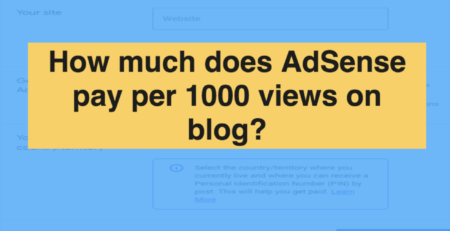
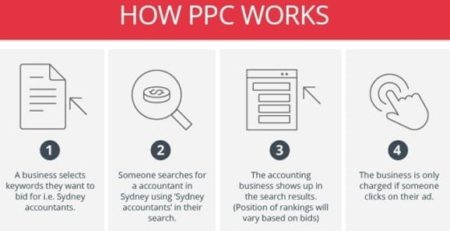
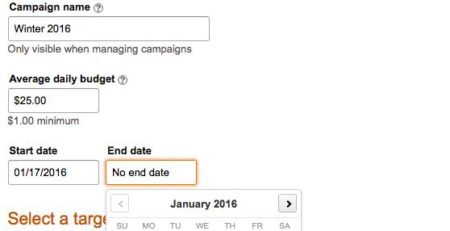
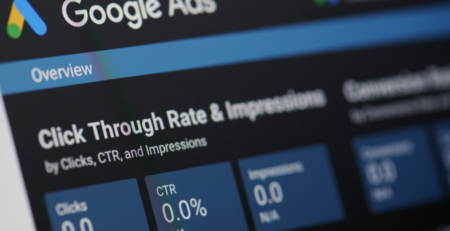
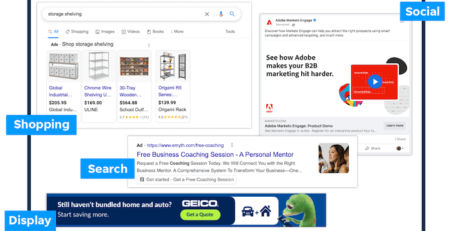
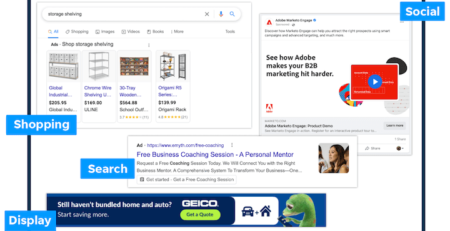
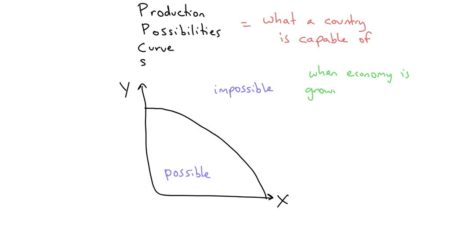
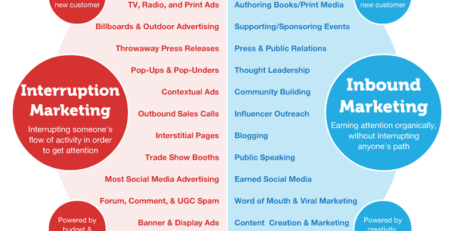
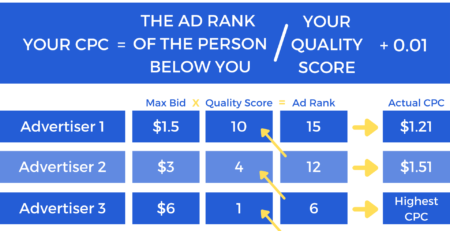
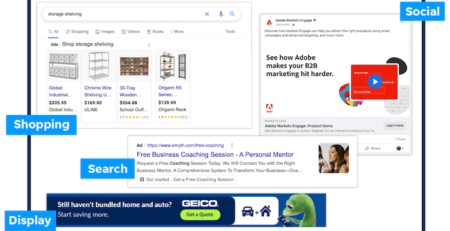
Leave a Reply